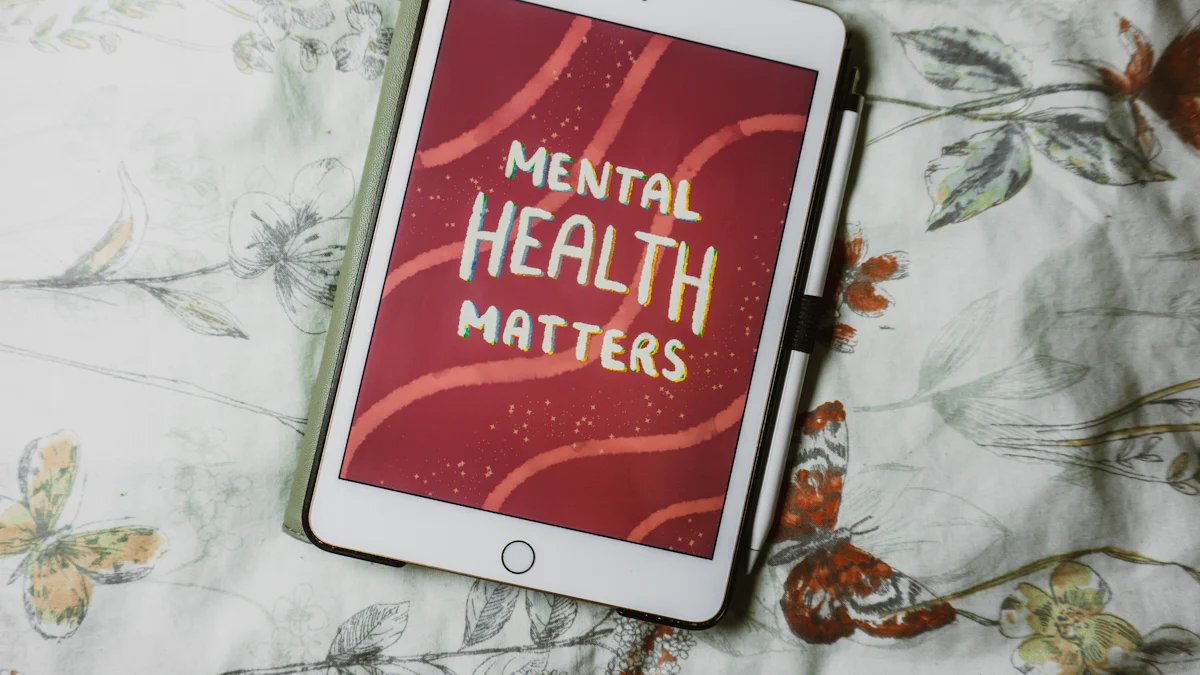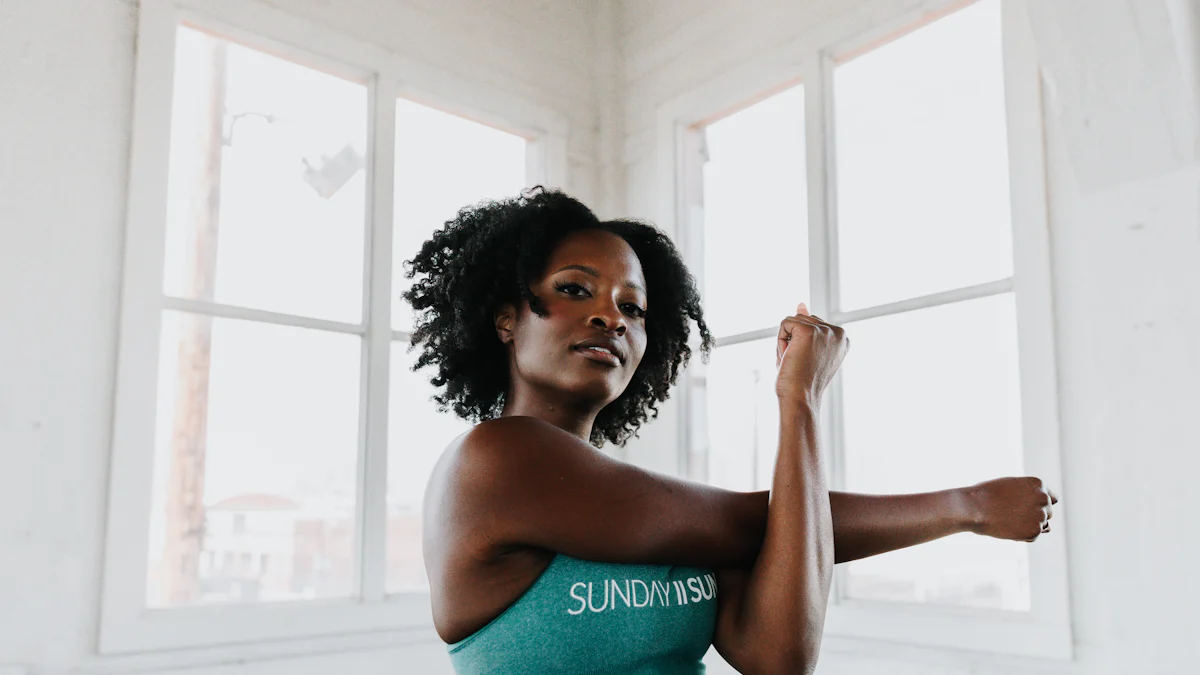How Social Media Influencers Shape Health Behaviors in 2025

Have you noticed how much social media influencers shape the way you think about health? Their reach has grown so much that they’re now a major force in how people approach fitness, diet, and even mental well-being. In fact, a recent study shows that 82% of patients are likely to follow health advice from influencers, and healthcare-related content from influencers gets 45% more engagement than posts from traditional organizations.
This influence isn’t all good or bad—it’s both. On one hand, influencers promote healthy habits and raise awareness about important health issues. On the other, they sometimes spread misinformation or encourage unhealthy behaviors. The social media influencers impact on society is undeniable, and as we move into 2025, their potential role in shaping health behaviors will only grow.
| Statistic | Value |
|---|---|
| Percentage of healthcare consumers trusting health information from influencers | 63% |
| Percentage of patients likely to follow health advice from influencers | 82% |
| Percentage of healthcare marketers using influencer marketing | 70% |
| Expected growth of healthcare influencer market from 2021 to 2025 | 10.1% |
| Percentage of healthcare professionals believing influencer marketing positively impacts public health awareness | 55% |
| Engagement rate of healthcare-related content from influencers compared to healthcare organizations | 45% higher |
The impact of social media on health behaviors is clear. Whether it’s encouraging you to try a new workout or making you rethink your diet, influencers are shaping your choices every day. But with this power comes responsibility. The effects of their influence can inspire positive change or lead to harmful trends.
The Current Landscape of Social Media Influencers and Health
The Role of Influencers in Health Communication
Social media influencers have become a bridge between health information and the public. They simplify complex topics and make them relatable. Whether it’s a fitness guru sharing workout tips or a mental health advocate discussing self-care, influencers are reshaping how you consume health advice. Their platforms allow them to reach millions, making health communication more accessible than ever.
However, this influence comes with challenges. While many influencers share accurate information, others spread misleading health messages. This is why strategies to counter misinformation are crucial. Some influencers collaborate with health experts to ensure their content is credible. These partnerships not only enhance trust but also help combat the spread of pseudoscience.
Areas of Influence on Health Behaviors
Dietary habits and fitness trends
Have you ever tried a new diet or workout because an influencer recommended it? You’re not alone. Campaigns like #FitFamChallenge and #HealthyHabitsChallenge have inspired countless people to adopt healthier lifestyles. Influencers often share meal plans, fitness routines, and even myth-busting content to make nutrition and exercise more approachable. Their impact on social media has made healthy living feel achievable for everyone.
Body image and self-esteem
Influencers also shape how you view yourself. While some promote body positivity and self-acceptance, others unintentionally set unrealistic beauty standards. This duality can either boost your confidence or harm your self-esteem. The key is to follow influencers who encourage authenticity and celebrate diverse body types.
Mental health awareness and challenges
Mental health is another area where influencers are making waves. Campaigns like #WellnessWarriors focus on mindfulness and emotional well-being. Influencers openly discuss their struggles, breaking the stigma around mental health. This transparency helps you feel less alone and more empowered to seek help when needed.
Why Influencers Are Trusted
Building personal connections with audiences
You trust influencers because they feel like friends. This trust stems from parasocial relationships, where you form a one-sided bond with someone you follow online. These connections create a sense of familiarity and emotional closeness, making their advice feel personal and genuine.
For example, collaborations like the one between Traackr and Travelocity show how influencers build rapport with their audiences. By engaging in value-driven events, they create authentic connections that foster trust.
The power of relatability and authenticity
Relatability is another reason influencers resonate with you. They share their lives, struggles, and successes in a way that feels real. When an influencer talks about their fitness journey or mental health challenges, you see yourself in their story. This authenticity makes their advice more impactful and easier to follow.
Positive Impacts of Influencers on Healthy Lifestyle Behavior

Promoting Healthy Lifestyles
Fitness challenges and wellness routines
Have you ever joined a fitness challenge because an influencer made it look fun? Influencers often create engaging campaigns like #FitFamChallenge or #30DayWellness, encouraging you to take small steps toward a healthier lifestyle. These challenges make fitness feel less intimidating and more like a community effort. Whether it’s a yoga routine or a daily step goal, influencers inspire you to stay active and prioritize your health.
Many influencers also share their wellness routines, from morning stretches to mindfulness practices. These routines show you how to incorporate healthy habits into your day. By following their lead, you can improve your health outcomes while staying motivated.
Encouraging balanced diets and exercise
Influencers simplify healthy eating by sharing meal prep ideas, recipes, and grocery tips. They make balanced diets feel achievable, even for busy schedules. For example, a fitness coach might post a quick smoothie recipe packed with nutrients. These small, actionable tips can lead to significant health behavior change over time.
Exercise is another area where influencers shine. They break down workouts into easy-to-follow steps, making fitness accessible for everyone. Their relatable approach helps you see that a healthy lifestyle behavior doesn’t require perfection—just consistency.
Supporting Public Health Campaigns
Examples of successful influencer-driven campaigns
Social media influencers have played a huge role in public health campaigns. Here are a few examples:
- Fitness coaches and celebrities have inspired millions to adopt healthier habits through their platforms.
- Influencers boost engagement in health promotion efforts by making them relatable and fun.
- Their credibility often motivates followers to take action, whether it’s getting vaccinated or joining a wellness program.
Raising awareness about mental health and diseases
Influencers are also champions of health awareness. Campaigns like #WellnessWarriors and #MindfulMondays focus on mental well-being, encouraging you to prioritize self-care. They openly discuss their struggles with anxiety or depression, breaking the stigma around mental health. This transparency helps you feel less alone and more willing to seek help.
When it comes to diseases, influencers amplify public health messages. They share stories, statistics, and prevention tips, making complex topics easier to understand. Their efforts improve health outcomes by encouraging early detection and treatment.
Disseminating Accurate Health Information
Collaborations with health professionals
Many influencers work with health professionals to ensure their content is accurate. Campaigns like #MedTalks pair influencers with doctors to debunk myths and provide science-backed advice. These collaborations create videos, Q&A sessions, and infographics that make health information accessible and trustworthy.
Using platforms to debunk myths and misinformation
Influencers use their platforms to fight misinformation, a critical part of public health efforts. They tackle viral myths and replace them with facts, helping you make informed decisions. This dissemination of health information improves health awareness and reduces the spread of harmful trends.
Negative Impacts and Challenges of Social Media Influencers
Spread of Misinformation
Unverified health advice and pseudoscience
Have you ever come across health advice online that just didn’t seem right? Social media influencers often share health tips that lack scientific backing. This is one of the biggest challenges with the impact of social media on health. Many influencers, despite good intentions, spread misleading health information. For example, some promote alternative treatments for serious conditions like cancer or suggest unproven birth control methods. These claims can lead to dangerous consequences for those who follow them.
Here’s a quick look at the most common types of health misinformation influencers spread:
| Type of Misinformation | Description |
|---|---|
| Misleading Health Claims | Claims that contradict scientific consensus or verifiable facts. |
| Complex Health Concepts | Oversimplified messages that misrepresent complicated health issues. |
Some viral trends, like drinking Borax for arthritis, highlight the dangers of following unverified advice. These trends not only mislead but also pose serious health risks.
The dangers of viral health trends
Viral health trends can seem fun or harmless at first. But they often carry hidden dangers. Influencers sometimes promote these trends without understanding their risks. For example, a detox tea might promise quick weight loss but lead to dehydration or nutrient deficiencies. Following such trends can harm your health instead of improving it.
Promotion of Unhealthy Products
Endorsements of fad diets and supplements
Influencers frequently endorse fad diets or supplements that promise miraculous results. These endorsements often lack scientific evidence and can lead to body image dissatisfaction. For instance, a diet pill might claim to burn fat overnight but cause harmful side effects. The marketing of these products often preys on your insecurities, making you believe you need them to achieve unrealistic body images.
Marketing of harmful or ineffective products
Some influencers promote products that are outright harmful or ineffective. From waist trainers to appetite suppressants, these items can damage your physical and mental health. Studies show that influencer marketing of unhealthy foods even increases children’s calorie intake. This highlights the negative roles of smis in shaping health behaviors.
Psychological Effects on Audiences
Unrealistic body standards and comparison culture
Scrolling through perfectly curated images of influencers can make you feel inadequate. Many influencers present unrealistic body images that don’t reflect reality. This can lead to body image dissatisfaction and a constant cycle of comparison. You might find yourself chasing an ideal that’s impossible to achieve, which can harm your self-esteem.
Increased anxiety and self-esteem issues
The impact of social media on mental health is significant. Constant exposure to idealized images can increase anxiety and lower your self-worth. You might feel pressured to look or act a certain way, which can take a toll on your mental well-being. It’s important to remember that these images are often edited and don’t represent real life.
Trends and Predictions for 2025

Stricter Regulations on Influencer Content
Government policies and platform guidelines
By 2025, you’ll notice stricter rules governing what influencers can and can’t say about health. Governments and social media platforms are stepping up to combat misinformation. Policies now require influencers to back their health claims with scientific evidence. Platforms like Instagram and TikTok are introducing stricter content moderation tools to flag misleading posts. These changes aim to protect you from harmful advice and ensure you get accurate information.
Transparency in sponsorships and health claims
You’ve probably seen influencers promoting products without making it clear they’re paid partnerships. That’s changing. Transparency is becoming a top priority. Influencers must now disclose sponsorships clearly, so you know when a post is an ad. This shift helps you make informed decisions and builds trust between you and the influencers you follow.
Rise of Health Expert Influencers
Increased collaboration with certified professionals
In 2025, you’ll see more influencers teaming up with certified health professionals. These collaborations bring credibility to the content you consume. For example, campaigns like #MedTalks pair influencers with doctors to provide reliable advice. This trend ensures you’re getting information that’s both engaging and scientifically accurate.
Growth of niche influencers in health and wellness
Niche influencers are gaining traction, offering specialized advice tailored to your needs. Whether you’re into yoga, nutrition, or functional medicine, there’s an influencer for you. Here’s a quick look at some rising stars in the health and wellness space:
| Influencer Name | Specialty | Brands Collaborated With |
|---|---|---|
| Alan Filauro | Fitness expert and personal trainer | Restore Hyper Wellness + Cryotherapy, Lenny & Larry’s |
| Melissa Wood-Tepperberg | Yoga and pilates trainer | Mary Ruth’s Organics, Citrine Natural Beauty Bar |
| Raoum Alsuhaibani | Certified nutritionist | Hungerstation, Herbal Essence |
| Jerrelle Guy | Food expert and photographer | Bon Appetit Magazine, Le Creuset |
| Joe Wicks | Fitness coach | Lululemon |
These influencers focus on specific areas, making their advice more relatable and actionable for you.
AI-Driven Influencer Campaigns
Personalized health recommendations through AI
Artificial intelligence is revolutionizing how influencers connect with you. AI tools analyze your preferences and health goals to deliver personalized recommendations. Imagine an influencer suggesting a workout plan tailored just for you. This level of customization makes it easier for you to adopt healthier habits.
Ethical concerns with AI-generated influencers
While AI offers exciting possibilities, it also raises ethical questions. Virtual influencers, like Shudu, often promote unrealistic beauty standards. You might not even realize they’re not real, which can blur the lines of authenticity. Critics also point out issues like cultural appropriation and lack of representation. These concerns highlight the need for transparency and ethical guidelines in AI-driven campaigns.
As social media evolves, these trends will shape how influencers impact your health choices. By staying informed, you can navigate this landscape and make decisions that truly benefit your well-being.
Strategies for Maximizing the Positive Impact of Social Media
Social media influencers play a huge role in shaping how you think about health. Their impact is everywhere—from the workouts you try to the mental health conversations you join. By 2025, trends like stricter content rules, expert collaborations, and AI-driven campaigns will redefine this influence.
🧠 Remember: It’s up to you to balance the benefits and risks. Follow credible influencers, question health claims, and stay informed.
When influencers and audiences work together, healthier online communities become possible. You have the power to make smarter choices for your well-being!
FAQ
What makes influencers so effective at shaping health behaviors?
Influencers connect with you on a personal level. Their relatable stories and authentic content make their advice feel trustworthy. You see them as peers, not experts, which makes their recommendations easier to follow. This emotional connection is what drives their impact.
How can you tell if a health influencer is credible?
Look for influencers who collaborate with certified professionals or reference scientific studies. Check if they disclose sponsorships and avoid making exaggerated claims. A credible influencer prioritizes transparency and shares evidence-based advice.
🛠️ Tip: Always cross-check health advice with reliable sources like CDC or WHO.
Are all health trends promoted by influencers safe?
Not always. Some trends, like detox teas or extreme diets, can harm your health. Influencers may not fully understand the risks of what they promote. Always research trends and consult a professional before trying something new.
How can you avoid falling for misinformation online?
Stay skeptical. Question bold claims and avoid advice that sounds too good to be true. Follow influencers who work with experts or share verified information. Platforms like Instagram now flag misleading posts, so keep an eye out for warnings.
Will AI influencers replace human influencers in health?
AI influencers are growing, but they lack the emotional connection you feel with real people. While they offer personalized recommendations, they can’t replicate human authenticity. You’ll likely see a mix of both in the future.
🤖 Note: Be cautious with AI influencers. They might promote unrealistic standards or lack accountability.
See Also
Key Influencer Marketing Trends You Should Follow This Year
15 Essential Influencer Marketing Platforms for Your Strategy
Effective TikTok Influencer Marketing Techniques for 2024
Exploring TikTok's Impact on Current Social Media Trends
Practical Influencer Marketing Statistics for Better Planning
